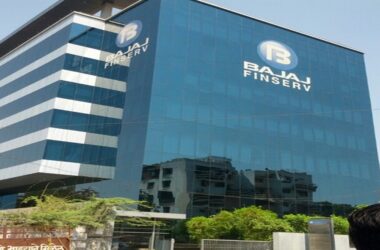
For 11 days last July, hundreds of angry young Tripuri tribal men blocked a national highway on the outskirts of the capital Agartala as well as the state’s lone railway track. Gathered under the banner of the Indigenous People’s Front of Tripura, a political party that claims to represent the state’s indigenous tribal population, they demanded a separate state called Twipraland.
Pitor Debbarma, 28, had squatted on the highway every day for 11 days. The vice president of the All Tripura Indigenous Student Association, a “brother organisation” of the Indigenous People’s Front, said he had joined the agitation because he was tired of the Communist Party of India (Marxist) government’s “partiality”.
“They are giving all favours to the non-tribal areas,” he said. “Just look at the difference in development. They are not paying attention to tribal areas. Lakhs of educated young people are just moving around aimlessly because there are no jobs. There is no development in our area.”
The tribal areas are administered by the Tripura Autonomous District Council under the Sixth Schedule of the Indian Constitution. This provision allows for autonomous, decentralised self-governance in certain tribal regions of Assam, Meghalaya, Mizoram and Tripura. In Tripura, the council administers over 7,000 sq km across all eight districts. The Indigenous People’s Front wants all these areas – accounting for almost 70% of the state’s territory – to be turned into a separate state called Twipraland. The indigenous people account for a little over 30% of Tripura’s total population and form a crucial voter block. A third of 60 Assembly seats is reserved for the state’s tribal population.
Now, as the state gears up for election on February 18, the Indigenous People’s Front has tied up with the Bharatiya Janata Party.
Enter BJP
The CPI(M), which has ruled the state for the last 25 years, has so far enjoyed substantial support in the council areas through its tribal wing, known as the Tripura Rajaer Upajati Ganamukti Parishad. However, the council was also the entry point for the BJP, which has emerged as the main contender to the communist party in recent years.
In the Tripura Autonomous District Council election of 2015, the BJP finished second in five seats – with a vote share of nearly 8%. A non-entity in the state until then, the election helped the BJP edge out the Congress as the primary opposition. Ever since, the party has been in the ascendant.
The CPI(M) has often accused the BJP of preying on the insecurities of the tribal population to advance its political aspirations. The blockade, too, the ruling party alleged at the time, was the handiwork of the BJP, calculated to foment unrest before the state election. Both the Indigenous People’s Front and the saffron party had denied the allegation.
The BJP had, however, said it “recognised the deprivation of the tribals of the state”. If voted to power, the BJP said, it would convert the district council to a “state council” with a provision for direct funding from the Centre. Speaking to Scroll.in days after the blockade in July was lifted, the tribal party’s president, NC Debbarma, had called the BJP’s proposal “bogus propaganda”.
Yet, few observers in Agartala were surprised when the two parties forged a pre-poll alliance recently. Under the arrangement, the BJP will not nominate candidates for nine of the 20 reserved seats.
The CPI(M) has dismissed the alliance as opportunistic. “IPFT is a separatist force and its terror links are well known to the people of Tripura,” said the party’s state general secretary Bijan Dhar.
He was referring to a widespread perception that the Indigenous People’s Front, which came into being in 1996, has the tacit backing of the banned secessionist group, the National Liberation Front of Tripura. “In their constituencies, IPFT is campaigning on the basis of the statehood demand, but here BJP is saying no separate state,” Dhar said.
The statehood demand did not enjoy popular support, Dhar insisted, and the resentment was “generated by the BJP” for electoral gain. His party colleague, Jitendra Choudhury, a tribal MP from Tripura and the state’s former tribal welfare minister, echoed Dhar. The discontent existed only among “a very microscopic section of the middle-class tribals”, he claimed. “The tribal vote is going nowhere,” Choudhury affirmed. “The access to the fruits of development to tribals is unprecedented. What Tripura has ensured for its tribal population in terms of access to land and social security, no other state has managed.”










